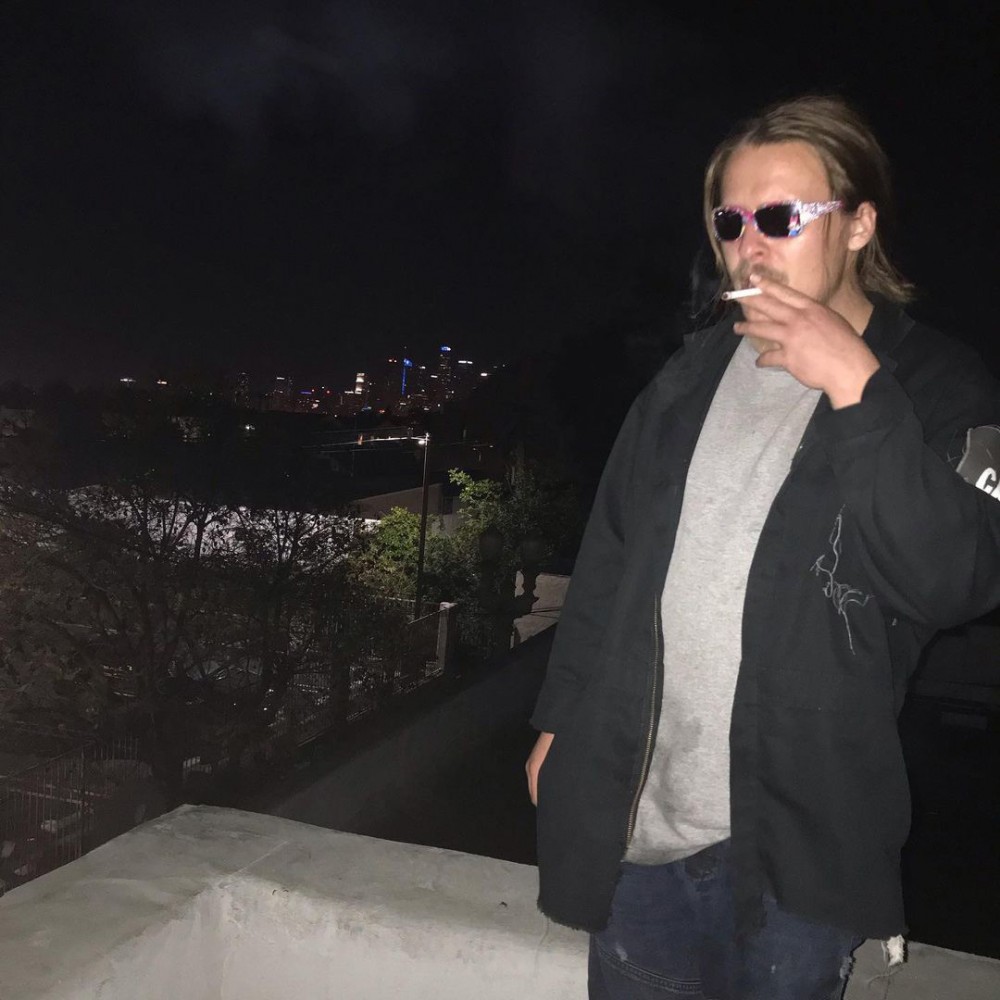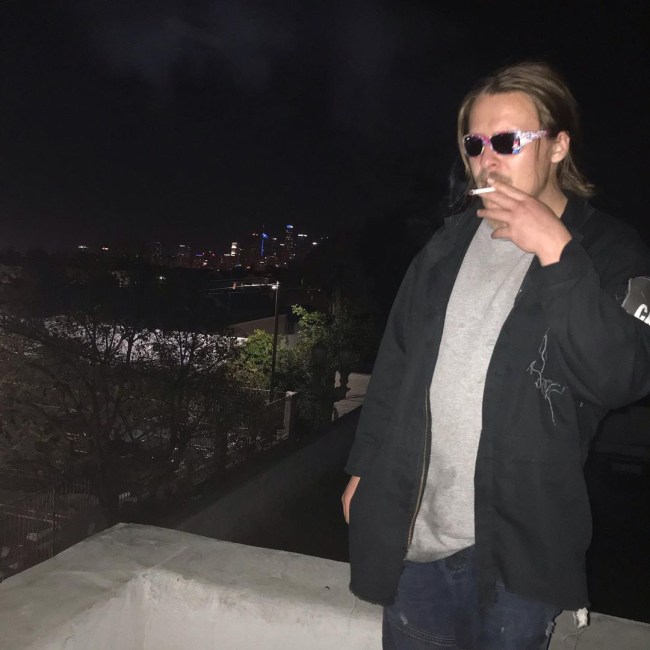
Photo via Lucas Foster
Show your support by subscribing to Passion of the Weiss on Patreon.
Jeff Weiss
“It is life, not the individual, that is conscienceless. The essential, therefore, is to understand the time for which one is born.” – Oswald Spengler
“Besides my starry-eyed dreams of ‘making it’ as a writer in a basically illiterate society, in an impoverished industry, besides lingering post-acute withdrawals manifesting as depression, besides conspiratorial paranoia and reactionary distrust of secular reprogramming by AA’s methodical ego destruction, I’m alright.” — Lucas Foster in a letter to me, right after he outlined his unwritten book, “The Soundcloud Generation” (Lol). His Lol, not mine.
Lucas, the problem was that you understand your time too well. Skeptical of every neon cliché with clout-dementia, wary of every face-tatted fugazi, hip to the minor but fundamental differences between cold genius and false messiahs. Even when I was convinced that you were out of your fucking mind, you had the gift to convey what rumbled underneath the surface. You scoped the lo-fi ontology of sounds, the Bering connections between the classics and the vowel-less present, shouting your swag echolalia with deep-fried irony and dead-set sincerity. The architectural critic of our emoji oblivion. You’re still never going to get me into Yung Lean though.
Most legitimate writers, what’s left of them anyway, are doomed to stutter-step off-tempo, detecting fleeting pulses, fated to observe. Then there’s the naked careerists asking how does it feel, who unknowingly post their L’s by building flimsy shrines for halfway artists who hold them in contempt anyway. The real recognized you. The phantom-blonde prodigy from the mud and waves of north San Diego County. Surf champ turned amphetamine nomad haunting the Mariana depths of message boards and Grayhound bus stations, husting meme pages for 20 racks to oblivious foreign entrepreneurs and headbanging in the mosh pit at Wifigawd shows. A spy for us, the vessel for those too old, too young, or too drip-free to ever see things from below. A homeless urchin writing opuses on an Obamaphone. Swiping Versace loafers from the Nordstrom Outlet, lest you show up to your Lil Pete interview lacking sauce, waving to the security guard as you walked off. Very rare.
Lucas, you were supposed to tell the stories for those searching for the right words. Those desperate for refuge and redemption, whose tragedies you absorbed and added on your own. The 45-year old alcoholic with congestive heart failure reflecting on his self-destruction in rehab, and the darkwave Soundcloud goth rappers who saw 90s Memphis as Motown with murder on its mind; the Compton OGs from Tortilla Flats who split their heroin with you when you were supposed to be getting clean, and the yentas with stick-n-pokes in San Francisco who blessed you with a couch to crash on. You, whose soul came unstuck during liminal Suboxone visions in 818 treatment centers, who suffered to find stability in this holocaust dimension. No illusions about America in the 2010s, the last judgments of late capitalism, where all original minds are devoured up by blue check black holes and repackaged into smooth-brained consumer experiences. What were you supposed to do, shout into a drive-through that Cactus Jack sent you to buy a quarter pounder with bacon? Wash it down with a Cacti hard seltzer?
Lucas, you were a tornado in a nuclear winter, born under a shadow-banned sign, condemned to be custom-made for the moment, nostalgic for Burroughs but scamming 4chan Nazis on a Pepe the frog cult GoFundMe, rhapsodizing about Spengler, Steely Dan, and Spider Gang. It made sense in no other era, but this one was too sunken to offer safe harbor. The first thing you ever wrote on here was a fully formed essay about a sub-genre that wouldn’t be widely recognized for another year. When it was published, you politely asked for advice about the possibility of having a career in writing, or even a side line. I knew optimism was futile, but if anyone had the talent, it was you. And eventually, it happened, even if only for a brief holiday. As you wrote to me later, “music criticism is currently a race to the bottom…It was never meant to be middle-class middlebrows finding increasingly obscure ways to celebrate the same 10 superstars.” No one was going to pay your rent to publish your exclusive Nolanberollin interview. And even if they wanted to, the budgets had long since been massacred; no leeway left to gamble a staff position on a genius vagabond who might turn up dusted in a Cincinnati bando, waxing philosophic about warped Icelandic trap. The stories gone unwritten will fill up annals in the communal library shared by heaven and hell.
Lucas, you were supposed to be the Newport-damaged voice of a pitch-corrected world, elegantly spazzing for those rendered obsolete in the post-industrial economy, laying supine and scrolling, numbed by infinite streams of hentai and Adult Swim, finding digital community among the ruins of the permanently dislocated. An uncut diamond that could stab your eye out, one of one. There is no glory in being ordained by obsolete gods, as there is now no benefit to being the embodiment of that old HST adage: “a high-powered mutant of some kind never even considered for mass production. Too weird to live, and too rare to die.” After all, that phrase was stolen for the title of a Panic at the Disco album. In the face of Babylonian nightmares, maybe the speedball smoke and pints of Evan Williams were the most logical way to mask the pain.
Lucas, don’t worry, I won’t make this a cautionary tale. I know you would’ve hated that. But I’m not about to celebrate the excess either. You were brilliant enough without the stepped-on speed and heartburn oceans of discount liquor. Your mom told me how you learned to read at 2, the winner of spelling bees and essay contests, capable of memorizing an encyclopedia’s worth of esoteric facts and sprinkling them into digressions about the criminal erasure of Spaceghostpurrp. I know how hard you fought, suffering through the demonic hallucinations of detox, the Nurse Ratchets of rehab who refused to let you get your book packages, sleeping in crumbling dormitories listening to the pitiable stories of the tormented. Too many nights shivering on the concrete, curled up on hardwood floors, dozing off upright in sketchy bus terminals. The hellscapes of city jails, befriending killers and trappers, a lunatic saint stranded and compromised. You don’t need to apologize, but you always did. I know you had to get it how you live.
Lucas, I’ll spare the platitudes about growing old. Comets can’t move in slow motion, and you existed in your own cosmically bent magnetic field, a nocturnal phenomenon constantly weaving in and out of sight. I did everything that I could to help, and we both understood that only so much could be done, but that will never ease the sadness that I was unable to save you from this fate. Your battles were too intense and at their most sinister, they sent you to places that none could ever understand. But when you had your foot on those demons’ necks, you were one of the most savage to ever do it. A four-dimensional laser eye guide through strangled chirp-hop and Satanic cybernetic squalor, blessed with the diabolic gift at finding coherence in outlandish chaos, rearranging it so that for a few minutes the void could speak in complete sentences.
Lucas, it will haunt me forever that your mission was incomplete, but I hope that you’ve been released from the pain. In a letters that you wrote, trapped inside that damned cellar of the soul, you told me that going forward you wished that you would be a “source of pride and joy and kinship” to me. Know that you were. The world failed you, but you did not fail the world. What you left behind was enough. Even at your wildest, you were beloved. Your cool veneer couldn’t hide your secret — at the heart of all the agony, the disdain for mediocrity, the outrage at a system that had no room for you — it was rooted in love. A love for the art, for your friends, for the delusional possibility that we could build some weird fortress to fend off the hopeless tragi-comedy of this human inferno. You understood that loss was the only possible outcome, but worked hard for temporary victories. Posting the dub for you now.
Lucas, neither me nor you were ones to imagine those cult-linen heavenly fantasias where you’re telling Walter Becker why he needs to cook up Fredo Santana some fire loops. But since you were always gone even when you were here, I’m going to picture you away on a long vacay, posted up in a clean luxury hotel room that you scammed with a cracked VPN. Your laptop finally isn’t breaking, the iPod is full of Chief Keef and Based God and it holds the charge, the glass is full, and you’re only taking breaks to chain-smoke cigarettes and admire the ocean view. Slowly but surely, the book is getting done, every chapter coming better and better. You’re free to finally scrawl your first masterpiece. Take your time, but just know that we’ll all be right here anxiously waiting. — Jeff Weiss
Harley Geffner

*Sigh* Lucas man. Whenever someone passes away, there’s always a million universal sentiments about how they were one of a kind, and that there was nobody else like them, which is always technically true, but for Lucas… I had never met an individual that was even in a remotely similar category as him. It was like he was dripped onto this planet from another universe and could not only see, but explain with an eagle eye all of the contradictions, absurdities, and fuck shit in our daily existences. Most of us notice them, but for him it was bewildering that anybody could choose to still accept it and act like it was all normal. “It is what it is,” never even crossed his mind. If you said that to him when he was explaining why some random social norm was actually really bizarre and dumb, he’d smack the shit out of you. One of the last truly original thinkers out there, and a chronicler of culture like none other. Just too big for this universe.
I first met Lucas, like many did, in Twitter DMs. It started there, then we would talk on the phone for an hour or so almost every day while he was at a bar waiting for a bus to take him home from a shitty job at a glue factory in 2017 (he never complained about it because he could listen to music all day there). We would chop it up about obscure rap, and weird shit we found on the internet, and he would compare a rapper with 800 views on his most popular YouTube video to Biggie or something, and I would nod along vigorously. The way he spoke was just intoxicating. We would chat ball, girls, history, art, whatever. It was not just that he liked music obsessively because it sounded good and moved him, it’s that he genuinely cared about the stories, about the context that all of this music was being made in. He wanted to uncover and learn about, and occasionally live the lives that inspired these severely under-covered rappers from often very under-served pockets of society.
Another common story, but Lucas was the reason I started writing about music. I tried my hand at it earlier, mostly as an aggregator, but not as an actual writer, analyzing the core principles of what makes the artists tick and the music important to understand. Lucas would encourage me, all the time, to pitch Jeff and POW on something. He would tell me that I had the ear for this shit and had a perspective that was worth sharing. It was the confidence Lucas instilled in me that made me look in the mirror and find the self-worth to think, hey maybe other people could genuinely benefit from hearing my thoughts on things. More than encouraging me and teaching me to write better, it’s that confidence that has helped shape my identity, to move through the world feeling good about myself. He did that shit for me, as I know he did for a lot of people too. He was so generous with his love and encouragement, he thought of everyone’s wins as his own.
When Lucas would stay on my couch for random periods of time while he was figuring out ways to get situated, he would often sit me down and give me history lessons out of that savant brain of his. When I told him about how I was too stubborn to ever actually listen to To Pimp A Butterfly in full because the singles were played by all the frat boys at my school I hated, he told me exactly that, “no you’re stubborn and you’re a fucking asshole on a high horse, and you better sit down right now on this couch, put your phone on airplane, and we’re going to listen to it top to bottom together.” That’s just one example, but he did the same with giving me history lessons on shoegaze, random cities’ techno scenes, and Memphis rap too (I think we listened to almost all 13 hours of the massive playlist he made), among other random genre niches. Jeff said that in another lifetime, he was a world-renowned PhD and there’s no doubt in my mind that’s true.
Lucas truly lived 50 lifetimes in his one and another 20 online. He spent time working a 9-5 marketing job somewhere in Ohio for a while, and helped run late-night techno shows, sleeping probably 3 hours a night for a good few months. He spent time doing vagabond shit in the desert in Colorado with some green-dreaded rappers, was in county jails in random cities, helped get someone off of terrorism charges in Little Rock, derided Austin for being the least cultured city in America for the time he spent there mostly walking the streets alone at night listening to Prince albums, and boy did he love himself a Greyhound bus. He spent more time on Greyhounds than anyone I knew. He sold a Facebook meme page for like $20K when he was in middle school. lol. He had e-girls in every city he could go live with for periods at a time. He real life argued or bartered with major label execs, Kanye’s team, street rappers, philosophy PhDs, cartel people, and junkies, able to speak every language in between.
His life and early death are obviously incredibly tragic. As Torii Macadams pointed out, he lived in a way that nobody should have to live, experiencing intermittent bouts of homelessness and struggling deeply with treatable addiction and mental illness and unable to get real help, in a country that has so much excess wealth. And writing an obit for him feels so fucked up. It still doesn’t feel real that his perspective can no longer be shared with the world. It’s a true loss for all of us. What would he have said about the corporatization of hyperpop/digicore that he exactly predicted would happen when the early inklings of the genre appeared? I think I know what he’d say about the Secret IRS file leak. What would he have to say about the inevitable shift to A.I. approximations of deceased artists’ music?
If there’s ever an A.I. that tries to approximate his writing, I might have to join him wherever he is now. May he rest easily up in the heaven he didn’t believe in and fuck up the angel who tries to argue in favor of letting in Andrew Yang or Roxanne Gay. May we all learn from Lucas and move through the world with a little more empathy, and 1994 Memphis rap, in our hearts.
Gang. – Harley Geffner
Paul Thompson
The thing Lucas realized very quickly was that I didn’t know anything. I think I understand the internet––I grew up ripping radio freestyles and looking away when friends cued up grainy videos of supposed beheadings––but he could see its source code: not the architecture itself, but the bleed from some kids’ brains into others’, the way tics of sound and syntax were regional and then not, the promise of “democratization” or whatever that was a lie, but one that could be salvaged. He was always selling dummy Instagram accounts to Qatari teens or explaining which rappers I’d never heard of from outside Orlando were stealing from rappers I’d sort of heard of from deep inside St. Louis. I couldn’t keep up. The last time I saw him he took me to a show in a warehouse I could never find my way back to, where the kids were so self-consciously cool that when an artist asked, from the makeshift stage, where one had gotten his shirt, he wouldn’t even answer. I laughed; Lucas didn’t. Of course that was offensive to him: he wasn’t hoarding anything, he was desperate, clawing at the walls to put you on to whatever was next. He could see the future. — Paul Thompson
Donald Morrison
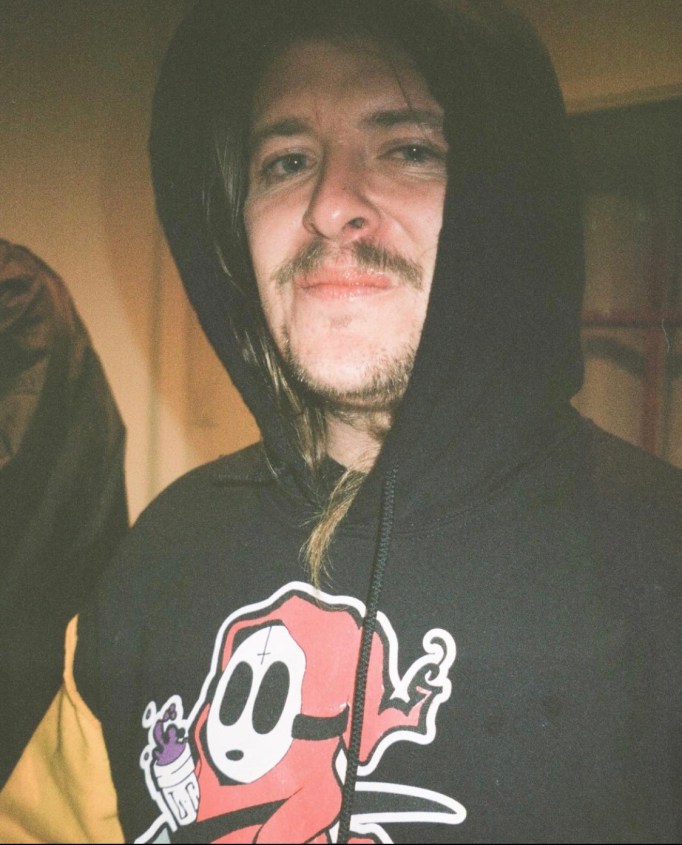
Lucas Foster was the first Passion of the Weiss writer to ever follow me back on Twitter and also the first to talk to me, and the only one that ever sent me direct messages about William S. Burroughs and taking Suboxone. His writing helped set POW apart from other rap blogs. It helped set a bar in style and thoughtfulness that we’re all still attempting to reach.
Lucas actually reminds me of William Burroughs, or even more so his son, William Burroughs Jr., who died at age 34 from complications stemming from alcoholism in 1981. There was a clarity in their chaos. Someone who could go to the outer reaches of society and still remain kind enough and unjaded enough to share their lives with us. His writing on NOLANBEROLLIN sold me on the SoundCloud artist before I ever heard him and his musings on WiFiGawd are legendary at this point.
But Lucas wasn’t just a hip hop writer. He was a writer’s writer first, who just so happened to be an encyclopedic hip hop head. He could absolutely body any topic he approached, and some of my favorite work of his is on bigger artists like Drake and Drakeo The Ruler.
Lucas was a singular voice in a community of seriously talented writers. He was a natural talent and is an invaluable loss to the musicians he championed and the fans, like myself, who followed his every word. Here’s Lucas doing what he did best:
“If anyone ever tells you the Underground is dead, or that the seeds we planted aren’t still in bloom today, know they are too far removed from the bone gristle of rap music to ever be trusted.”— Donald Morrison
Cory Lomberg
Here’s part of a letter Lucas wrote me — I think in late 2019 or early 2020 — after I sent him a book. Could not be more on brand. I remember googling what “turgid” means. Lucas is a truly original person. Those are hard to come by. He will be sincerely, sincerely missed. I’m sure he appreciates the love and the publication of his letters like he’s Dylan Thomas or something.
Cory,
I’m writing you from the bowels of a publicly-funded drug rehab in Long Beach, the sort of place that simultaneously upholds the very highest ideals of a liberal great society now shredded and tattered and is burdened and nearly made ineffectual by arduous and turgid decades of legislature and de facto regulations. It’s the sort of place where you can have illuminating geo-political debates with aging crack dealers and jewish American princesses who smoked their way out of the will. It’s the sort of place where the kitchen is not up to code but money pours in for the latest in sex education and sensitivity training (pointedly ignored in spirit by the acutely christian strain of 12 stepism preached by every counselor). It has generally inspired the sort of goofy hope and numbing ennui that is poison to writing (decently, at least), and the facility’s constant busy work, overcrowding, and cramped quarters are also not encouraging to this end.
I can’t tell you how perfect your book was for me at this moment. Like an oasis etc. (insert your simile here). Well, I can’t tell you how perfect it is/was/will be YET.
I’m currently piecing together a book with similar ambitions, one that intends to put to paper an incomplete history of the sprawling indie rap scene known commonly as Soundcloud rap, derisively as mumble rap, and vaguely called “the underground” by those doing the rapping. It’s quite a task, but sometimes providence or fate or circumstance puts you in a position where you have to push forward. My circumstance is that I’m the only half-decent writer with knowledge on the subject, a network of minor and major players, and who was actually closely listening from 2011 on. The other guy attempting to do the same is 40 (forty years old) and wrote one article for the New York Times as its primary wave of stars was cresting. Needless to say God himself has conjured me from the depths of junkie hell to provide an antidote to something so unbearably lame.
So, Our Band Could Be Your Life is just the sort of thing I need to shake me from a pit of writer’s block so I can attend to my business. For that I am very much in your debt and offer you my sincerest thanks. – Cory Lomberg
Jack Riedy
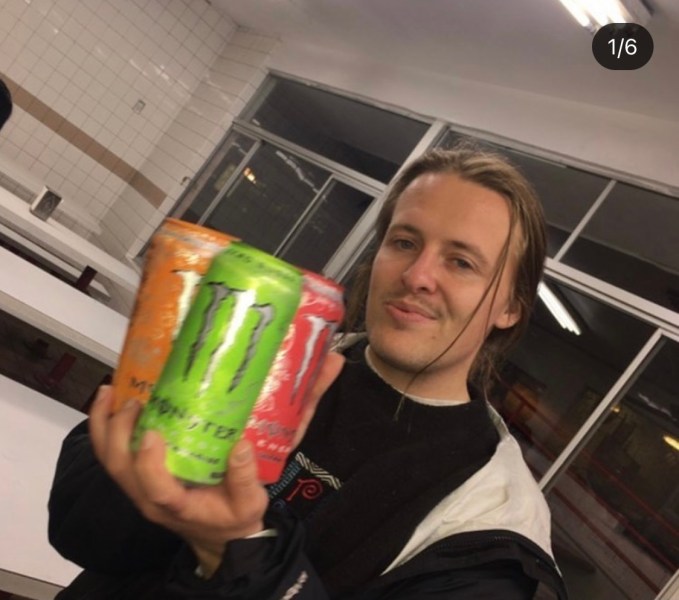
I read Lucas’ writing every time, and he was never better than when he was posting one or two SoundCloud tracks a day. Even when I didn’t like the music, I knew it was good, because Lucas said so.
I once tried to set him up with a festival reporting assignment when I couldn’t afford to travel to the west coast. I wanted to see a corporate music event through the same slightly-out-of-focus perspective as the studios, streets, and strip malls he wrote about. The job didn’t work out, but the last time I talked to him, he was too focused on managing artists to care about chronicling some bullshit. He was ambitious enough to help the right artist find the true believers.
Lucas was one of them. He really gave a fuck about the music. He cared about the music and he cared that someone was keeping track of the actual underground while everyone else was formulating takes in a lab for maximum engagement. When future generations emerge from their bunkers to sort through the wreckage of the 21st century, I hope they comb through Lucas’ writing like sacred texts. I know there’s music I’ll never hear without Lucas to bring attention to it, but I will be reading his work for a long time.– Jack Riedy
Josh Svetz
The first interaction I had with Lucas, he told me that I delivered information between phrasing that bloggers type under duress as slaves at content farms… and he was right. It was one of the many grueling edits he posted on my first POW article. As I looked through each heart-piercing stab to what I thought was an alright piece, he left a final summary that put me at ease: “My critiques are only given to drive you to improve. What POW gave me was a drive to constantly dig deeper into the music I’m writing about and myself. That’s the gift!”
In three sentences, Lucas made me feel like he had my back and understood my struggle more than anyone else I had ever been edited by. The piece did eventually get shaped up and came out. He was the first to DM me congratulations and praise the growth from the first edit to the finished product. And then he did something I’ve never seen in my nine years in media. He offered to help with anything, copy editing, contacts, brainstorming, anything, and left his number and email. Even the most friendly editors don’t do that off one article. He didn’t even know if I’d write for the site again – he just felt inclined to help me.
The next two months DMing him proved this. Over this short but cherished time, he would send me books and essays to read, 6:00 A.M. manifestos on Plugg music, Tread Music playlists and links to GoFundMes of people who had no other support.
If we didn’t talk for a week or so, he would hit me out of the blue to see how I was doing or what music I was bumping. As an adult, it feels like you always have to be the one to reach out, and when you reach out too much, it feels like you’re badgering people. But you didn’t have to worry about that with Lucas – he didn’t forget the people he fucked with.
When I tweeted late at night about an artist I thought I could get placed on big publications, he immediately DM’d me to delete it. He knew publicizing my future moves would lead to someone stealing my sauce. Not even my longtime friends cared enough to DM me when a tweet could harm my bottom line; he looked out for me.
Even the last interaction I had with him until he went offline, had his phone deactivated and his Twitter account suspended was him seeing some depressing tweets from me and offering to talk on the phone. That call never happened: but I wish it did.
Lucas Foster made more of an impact on me in two months than some people make in 20 years. It feels like he was too good for this cruel world, and it’s a darker timeline without him. But his passion for music and people is a blueprint for how rap communities ought to be. And his empathy for the artists he covered helped bridge the gap between artist and critic.
I don’t know if there’s an afterlife, but I’d like to imagine he’s somewhere showing David Foster Wallace Plugg music and talking to Hunter S. Thompson about the lineage of Raider Klan. RIP to the realest, Lucas Foster, bury him with a paperback of The Secret Agent in one hand, and a burnt CD of FUBU 05 in the other.– Josh Svetz
Nate LeBlanc

I can’t say that I knew Lucas Foster, but I did have a good conversation with him online about RBL Posse once. I had heard his name from reading POW, I knew that he was quite a bit younger than me, much more in touch with regional micro-scenes on the cusp of bubbling. That day, though, we were just two dudes chatting about the glory days of San Francisco gangster rap. We followed each other’s accounts and went on with our lives. A short while later, Lucas was on a bus heading north through California, and posted a set of particularly scathing but trenchant observations about my hometown in Silicon Valley to his IG story. I was impressed that he could glean such insight from the window of a Megabus, so I DM’d him and told him that what he said was really resonating with the “hate” side of my love/hate relationship with the area where I was raised.
At the time, my podcast Dad Bod Rap Pod was considering having journalists contribute short audio essays, correspondent pieces to be included in the show, and I invited him to record something about RBL. He said that he would try. I later learned that he was heading to San Francisco to report this story. It is not easy to pull off that kind of gonzo journalism in the surveillance age, and I was impressed with the level of panache in his writing. A bit later I saw a throwaway tweet that he had gone to a homie’s studio to record something for a podcast, but it was taking too long, and he bounced.
We may have chatted a few times after that. Something seemed amiss with him and I asked him how he was doing. It turned out that he was in rehab and the message went unanswered. I remember being happy for him when he had a big piece in Complex about Kanye, but I can’t remember if I told him that or not. Lucas was an original, he was brave, and he cared about this rap music journalism life with an urgency that I found intimidating. He will be missed. – Nate LeBlanc
Evan Gabriel
I don’t really know how else to say this, but Lucas Foster was one of a kind. He was such an intricate part of this community, with a voice all his own. I was looking forward to reading more of his unpretentious, fiercely descriptive work. I wanted to learn more about his story, I wanted more of the vivid details he’d lace in, those eloquent tangents and spiderweb threads he was known for. We were all rooting for him to get the next big break, whatever that looked like.
Lucas formed a dear bond with the music he loved. He knew how to color our imaginations, marbling stories with streaks of Gonzo that didn’t feel played out. Always striving, he wanted the best for the scene he’d immersed himself in, for the kids he befriended through oddball corners of the internet, and for the artists themselves.
From his indelible admiration for Wifigawd, to his deep connection to Memphis’s rap canon, the kid was a dedicated enthusiast. Just the amount of time he spent researching, cataloging, and uncovering obscure backstories is a mammoth undertaking of its own. You could not fuck with his drive. He wrote with conviction, zooming in on the smallest details to reveal the larger significance. His radar for bullshit was exceptionally sharp. I’m really going to miss the skillful wit and crafty wordplay he brought to the page. He took everyone somewhere new in those pieces.
In rereading some of Lucas’ work, it strikes me just how many gems he shared with our community in such a short time. He put us all onto so many new artists, acts we may have never discovered otherwise. And this goes for old and new music: Ozean, Koopsta, DJ Squeeky, Eric North, Ghostie, Ghostpizza, P2TheGoldmask, the list runs on. As a journalist, Lucas did his duty; digging and communicating to the world exactly what he saw around him.
My favorite piece by Lucas has got to be the POW Premiere: Eric North’s Terminal 4 EP. No matter how much I try to shake it, one line in particular keeps coming back to me. “I stumbled to the kitchen and poured Evan Williams into a glass and prepared to embark on another day of life and death in Downtown LA.” We are fortunate to have been graced by Lucas, in all his glowing detail, while he was here. Forever in our hearts. – Evan Gabriel
Sam Ribakoff
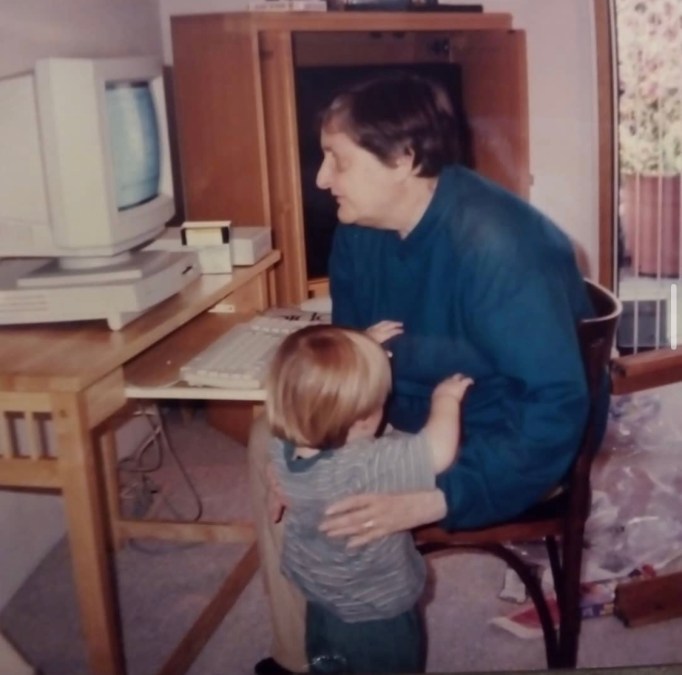
I only got to talk to Lucas once, briefly, over Twitter DMs while he was trying to finally get paid by a major media company for a freelance story he had written weeks, if not months, prior. This fucking industry.
In a situation that inspires rage in most people, Lucas was clear-eyed, righteously angry at the right people and institutions, funny, insightful, irreverent, and genuinely kind. All attributes that are essential to not just being a good journalist, but a good person. All attributes that reflected in Lucas’ writing.
Who else could frame scam rappers as “outlaw proletarian folk heroes,” resisting the real scammers of the investment banking, defense contracting, hedge fund, Silicon Valley, and technocratic world as the real scammers in an article, and then, in another article, connect the vulgar, inhumane, psychosis of American institutions to both the justice system’s treatment of Drakeo the Ruler, to his and his family’s inability to get mental health treatment, to the city of L.A.’s continued failure to house the unhoused.
Lucas’ writing was filled with that kind of depth and voice. He was fast developing a writing voice and a style of his own. A voice that was beginning to rise above the cliches and laziness of a lot of music journalism. Something that takes most writers years to do, if not a lifetime. That voice toggled between giddy insighter eager to get you hip, to sympathetic outsider wanting to learn and understand the subject of his articles. That voice used his own personal experiences not to narcissitically insert himself, or to confess for confessions sake, but because you get the sense that he was trying to understand the world around him, in all of it’s fucked up-ness, through his writing, and through the stories of his subjects. You also get the unmistakable feeling that he wanted to truly see a world that wasn’t fucked up. A world that cared for people.
That voice and feeling reminds me of one of my favorite writers, Isaac Babel.
Babel was a Ukrainian Jew during the Russian Revolution and the Russian Civil War. During the Polish-Soviet War Babel was sent to cover one of the Soviet army’s as a journalist. His short stories based around that experience were collected in a book called Red Cavalry. One of the stories in the book is called “Gedali,” and it’s about Babel entering Zhitomir, Ukraine, and meeting a Jewish antique dealer named Gedali who’s struggling to figure out if he should join the Soviet cause or not, since both the Soviets and the Poles kill and oppress the Jews. Babel tries to convince Gedali to join the Soviets, but Gedali brushes him off. It starts to become clear to the reader that this whole conversation is kind of a way for Babel to work out his own contradictory feelings about the Soviets, and his place as a Jew in the Soviet world, and the fucked up-ness of the violence the war is causing, and the fuck up-ness of the world itself.
“We know what the International is. And I want the International of good people,” Gedali says as he’s walking away from Babel and into a synagogue, “I want every soul to be accounted for and given first class rations. Here, soul, eat, go ahead, go and find happiness in your life. The International, pan comrade, you have no idea how to swallow it!”
Like Babel, you could tell Lucas cared about the world and wanted to see it be a better place for people. It’s not just Lucas’ undeniable writing ability that I’ll remember about him, but that conviction too. May his memory be a blessing. – Sam Ribakoff
Mano Sundaresan
You truly never knew what to expect from Lucas. It could be an all-caps DM from him asking for a jazz rec. Or it could be him telling you about e-girls, or comparing Wifigawd’s Heat Check Vol. 2 to John Coltrane’s A Love Supreme. What remained constant was his compassion. He realized this music writing shit was never about money or clout and thought of some of the POW people as family. He encouraged the newer writers to keep going and made me laugh and cry and promised that we’d link someday.
Even back in 2017, I felt a real sense of passion in the Tread primer, his first for POW. As he grew as a writer, the pieces would become more personal, biting and wider in scope. He’d later say that he only wanted to publish music writing that was more than “writing about music.” Man, did he commit to that. Here I was sharing his interviews with Lil Pete and Marcy Mane with people who didn’t even listen to rap music. And they loved them.
I wouldn’t wish the darker side of Lucas’ life on anybody. But the facts that you simply can’t separate from his work are that he’d spent time with important internet rappers over the years, and he was a brilliant, self-trained writer inspired by critical theorists and Beats and BasedWorld more than any specific music journalist. He commanded massive meme pages while listening to and studying the early work of artists now considered legends by internet music circles. He was an award-winning surfer who started an interview with one of the godfathers of cloud rap by asking if he’d ever tried it. He was the best-equipped human being to tell the stories of an entire era of internet rap, and reveal what that music said about us.
The Tread article has been cited in countless pieces and video essays and remains an underground classic. He penned the very first, and best, scam rap report, whose premise was likely cribbed by at least a half dozen other publications and a whole HBO documentary on Teejayx6 in which Lucas of course managed to make a small appearance. He got me, and probably you, hip to Ghostie and Marcy Mane and Spider Gang and Terr9r and Eric North and Wifigawd and old Memphis rap and new shit that sounds like old Memphis rap.
More than any other writer, he understood the material inequalities that undergirded internet rap. It wasn’t just some voyeuristic suburban thing. It was “the music of the lower middle class, the empty streets and degenerating culture of commuter subdivisions.”
It was only when we started talking more in 2019 that I began to realize how rare you really were. We shared reference points that went beyond music. You said I was good at this. You helped me with some of my first pitches to bigger publications, and, for better or for worse, you championed throwing out the journalism rule book. You kept the same energy in all facets of life. From what I hear you’re one of the few rap journalists who’d actually tear it up in the mosh pit. I wish I could’ve seen that.
The last email you ever sent me was last June, when you were off the grid, about how you got a rich girl’s phone number and were doing ok. I hope something came of that, and that you’re getting barrelled somewhere in deep space. – Mano Sundaresan
H.D. Angel
I never got the chance to speak with Lucas Foster, but he’s the main reason I write about music and, by extension, the reason I have many of my close friends. I remember bonding last year with POW contributor Jameson Orvis over memories of pieces like Lucas’ Cartier’God interview; his writing was what introduced both of us to the wider world of Internet rap, recognizing beauty, pathos and detail in entire universes of music we hadn’t explored before he put us on. Now we’re constantly scouring the Internet, trying to unearth new and exciting discoveries in those universes, thinking about what we find, and connecting with other people who share those experiences. It’s rare in 2021 to find a culture writer who inspires that level of community.
When I first stumbled on Lucas’ articles in high school, it was the most stylish music writing I’d ever read up to that point — so much richer and more personalized than the stuff SEO usually served me — and as I delved into his oeuvre, I decided that one day, I would be able to use language as well as he could. It’s still a bar I try to set for myself. He showed me how a person could ground the music they love in its history and context, and how they could make words out of the racing thoughts in their head that didn’t sacrifice those thoughts’ power. He was a giant of online letters, and most of what I have written or will write, I owe to him.– H.D. Angel

